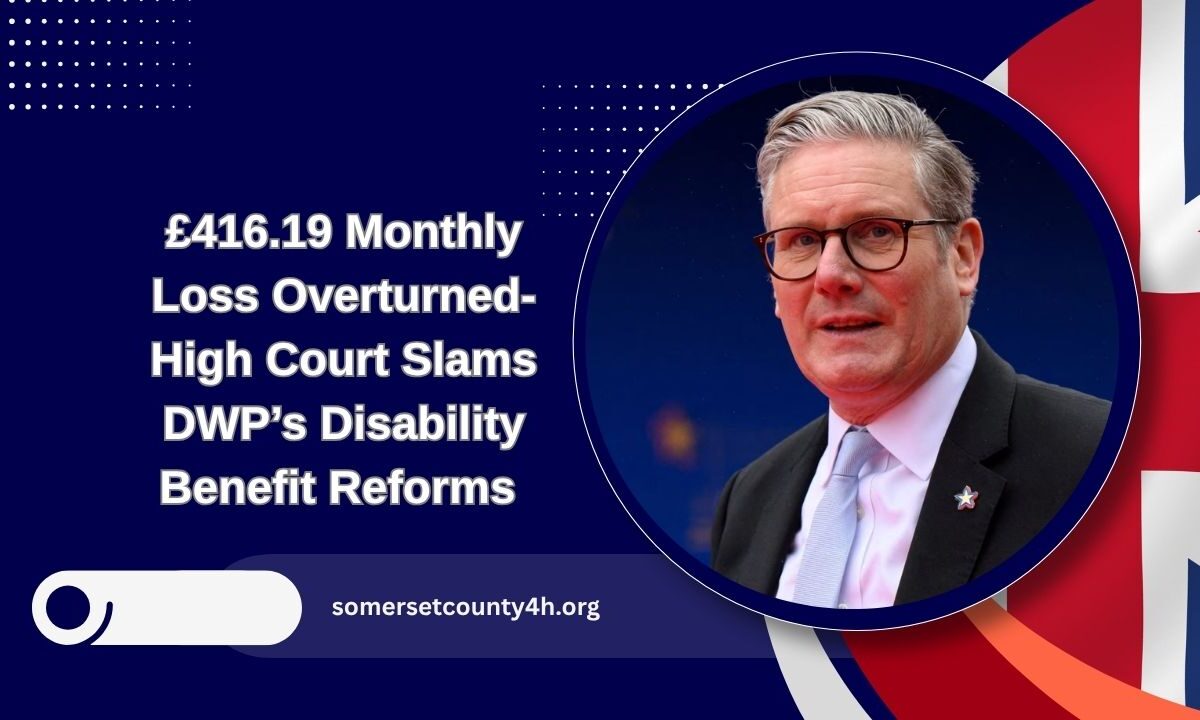A landmark High Court ruling has delivered a significant victory for disabled people across the UK, declaring the Department for Work and Pensions (DWP) reforms to disability benefits as unfair and unlawful.
The court condemned the consultation process as misleading and lacking transparency, exposing a controversial reform agenda driven more by cost-saving measures than genuine support for those affected.
This judgment not only highlights the failings of the DWP’s public consultation, but also raises major questions about the future of disability benefit assessments, signalling the potential for large-scale policy reform.
What Was the Legal Case About?
The DWP’s proposed reforms were positioned publicly as initiatives aimed at supporting disabled individuals back into employment.
However, legal action revealed internal documents showing the actual motivation behind the changes: reducing welfare spending.
The High Court heard that:
- Up to 424,000 disabled people could lose their benefits
- Nearly 100,000 individuals were at risk of falling into absolute poverty
- Some stood to lose at least £416.19 per month
These figures stood in stark contrast to the government’s messaging, which portrayed the reforms as beneficial.
Why the Consultation Was Ruled Unlawful
Presiding over the case, Mr. Justice Calver found that the DWP’s consultation:
- Misrepresented the purpose and impact of the reforms
- Omitted crucial internal data
- Denied the public a fair chance to respond
- Violated the government’s legal obligation for honest and meaningful consultation
The court emphasized that consultation must not be a tick-box exercise, particularly when policy changes could severely impact the most vulnerable segments of society.
What the Judgment Uncovered
The High Court exposed a series of internal findings the DWP withheld from public view. These included significant risks and negative outcomes associated with the proposed changes.
Summary of High Court Findings
| Impact Area | Details |
|---|---|
| Monthly Financial Losses | £416.19 or more for some disabled claimants |
| Poverty Risk | Nearly 100,000 individuals pushed into poverty |
| Employment Impact | No evidence of improved job outcomes |
| Sanctions and Penalties | Likely increase in penalties for benefit recipients |
Despite knowing these risks, the DWP proceeded with the reforms under a narrative that contradicted their own assessments—a misstep the court deemed “materially misleading.”
What Happens Next?
Although the ruling does not immediately cancel the benefit changes, it undermines the legitimacy of the reforms and opens the door to:
- Further legal challenges
- Political pressure to reopen or revise the consultation
- A potential reworking or reversal of the entire policy
Disability rights organisations, including Inclusion London and the Public Law Project, are demanding a new consultation process—this time with disabled people at its center.
Broader Implications for UK Welfare Policy
This ruling extends beyond the specific case, acting as a broader indictment of welfare policymaking in the UK.
Critics—including civil service unions like the PCS—have long warned that:
- Policy is being shaped by cost-cutting priorities, not social support
- Disabled people are bearing the brunt of poorly designed reform agendas
- Future reforms must be evidence-based, inclusive, and legally compliant
The ruling sets a precedent for how transparency and accountability must be upheld when policies directly affect public health, welfare, and dignity.
The £416.19 High Court victory marks a pivotal moment for disability rights in the UK. While the benefit reforms technically remain in place, their legal foundation has been shattered.
This ruling may become a turning point in welfare policy, reinforcing the legal duty of the government to consult fairly, act transparently, and prioritize those most in need.
For the disabled community, this is more than a legal win—it is a clear signal that their rights matter and that policy must be built on truth, not spin.
FAQs
What did the High Court rule about the DWP’s reforms?
The court found the DWP’s consultation process to be unlawful, misleading, and lacking transparency, violating legal standards.
How much could disabled individuals have lost under the reforms?
Some claimants were at risk of losing £416.19 or more per month, with nearly 100,000 pushed into poverty.
Does the ruling reverse the reforms immediately?
No. While the reforms remain technically in place, the judgment makes them vulnerable to further legal and political reversal.
